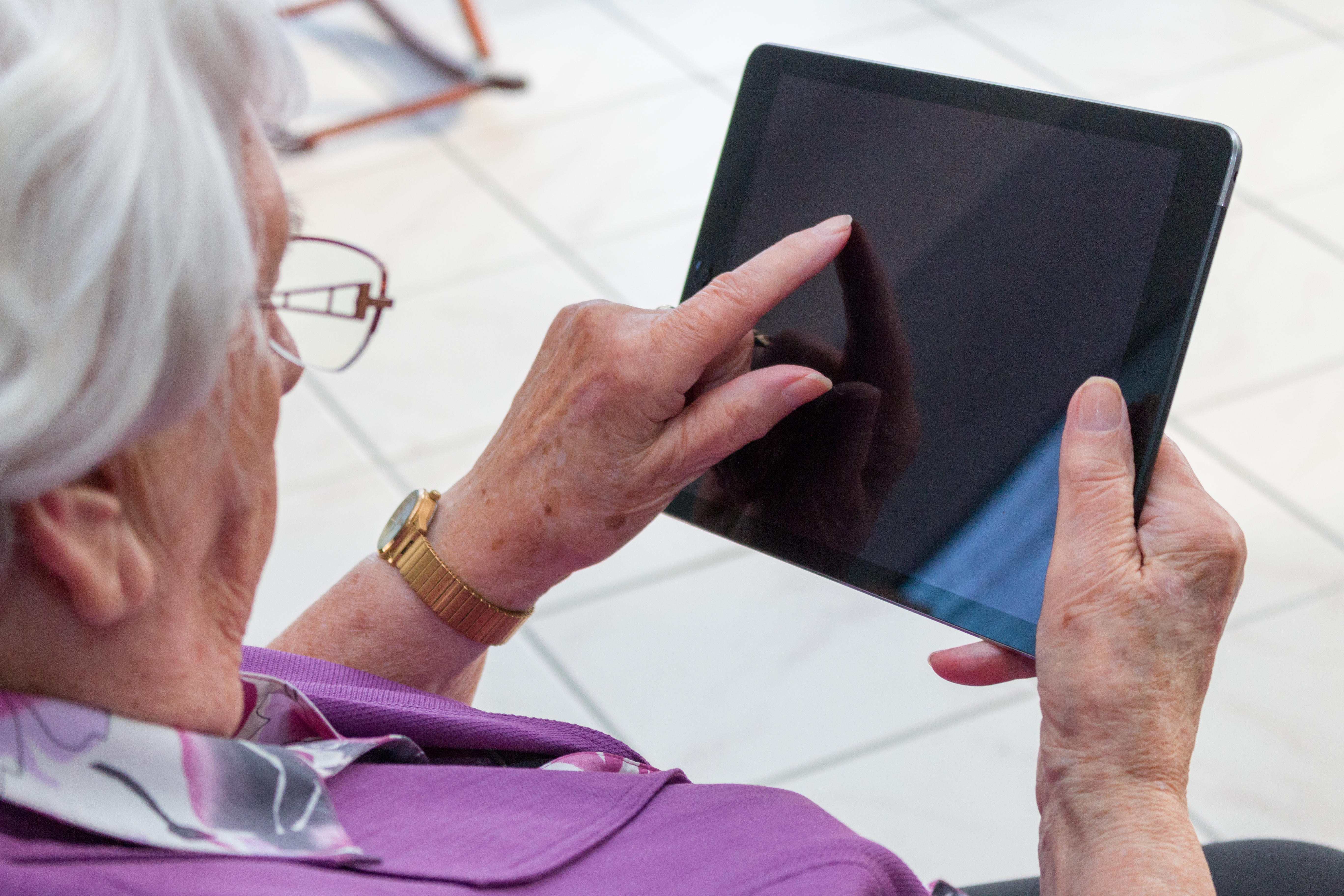Digital Companions pilot project celebrated at Innovation Showcase at the Senedd
A ground-breaking digital volunteering scheme pioneered by Digital Communities Wales: Digital Confidence, Health and Well-being, is one of the projects being featured at an Innovation Showcase being held at the Senedd on Thursday 16 January 2020.
The event will be attended by Assembly Members and MPs as well as senior leaders from Health Boards across Wales.
The Bevan Innovation Showcase will feature presentations from projects which have taken part in the Bevan Exemplars scheme, a programme which supports Health Boards and partner organisations to trial inventive solutions which improve health and well-being outcomes.
Digital Companions was chosen to be one of the Bevan Exemplars for 2019. The project identified older people lacking digital confidence and skills, and recruited a friend or relative to be their Digital Companion. Companions were given guidance to help them support their friend/relative. Over a period of several months, they helped them gain confidence using digital health services.
Digital exclusion is a significant public health challenge. As the digital transformation of health services continues, there is a risk that those who could benefit most from the digital health revolution are those that are left behind.
The Digital Inclusion in Health and Care in Wales report stated: “Those most in need of health and care are least likely to be online. Whilst the heaviest users of health and care services remain offline, the benefits of the digital health revolution will not be realised.”
Lack of interest, motivation and trust are the main reasons why people don’t go online. Many have concerns around privacy and security. The best way to conquer these fears is through one-to-one support from someone they personally know and trust – someone to be a Digital Companion.
The Digital Companions pilot was delivered by DCW and two health board partners, Hywel Dda Health Board and Aneurin Bevan Health Board.
In the Hywel Dda HB region, 15 Companions were trained and are now delivering their role; 40 more are booked in for training. In the Aneurin Bevan HB region, 34 Companions were trained and are now delivering their role; 20 more are booked in for training.
One of the Digital Companions who received training is CJ. CJ has been visiting a lady who had some understanding of the internet and was generally able to get out and about by herself. However, due to her mental health and a lack in confidence, she did not want to leave her home on a few of the befriending visits. During this time CJ introduced the tablet and idea of looking at interesting topics on the internet. The lady had not used a tablet before so this was an ideal opportunity to support her in learning more about this type of technology. Together they used the tablet to look at several things, for example, garden designs as she was having work done on her own garden. This gave relevance to the topic and also meant that she could explore ideas and creativity. They also looked at places she liked to visit and places she would like to visit. This gave her a feeling of travel without having to leave her home. It also gave her ideas for future trips. In other session, they looked at pets as she was interested in purchasing a cat. She used the tablet to look at opening times for the local pet store which the pair then visited. The lady became more confident in using the tablet and is now considering purchasing one.
The Digital Companions model has proved very successful in helping the people most reluctant to get online to overcome their fears and try digital technology. It is now being rolled out to other health board areas in Wales through the DCW programme.


